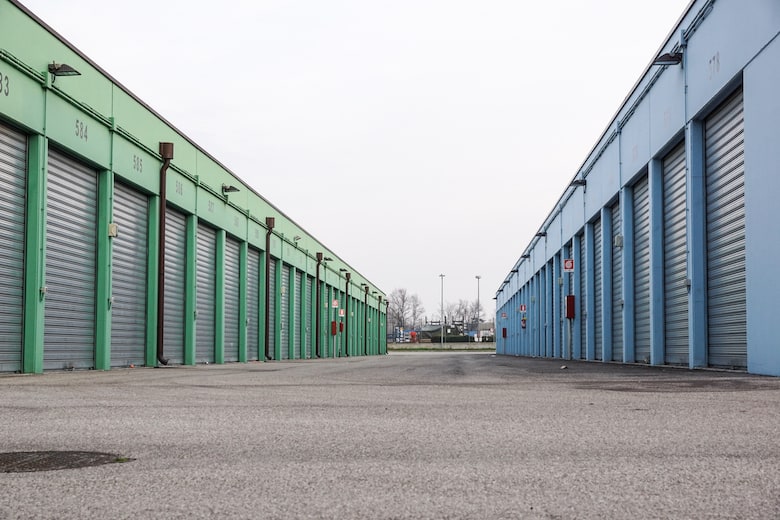How to Create a Self-Storage Business Plan [Plus a Free Template!]

By the end of 2020, roughly 4.35 million hopeful individuals had filed new business applications.
Perhaps the motivation was the loss of jobs or that people were fed up with the traditional 9-5 gig. Whatever the case, entrepreneurship has been a popular theme lately.
Many new business owners opted to pursue a real estate investment, specifically a self-storage business. For those of you on this path, let’s discuss creating a self-storage business plan and how a few purposeful decisions can catapult your business to the forefront.
It starts with a solid self-storage business plan.
Developing a business plan
Before you can start creating your business plan, you need to do some market research first. Start by relying on others’ history and experience. Do lots of market research. Network and learn from other marketing strategies. Attend an industry trade show. Diligently learn the ins and outs of running a small business.
Start to hone in on the details as you begin to formulate your plan. For example,, are you building or renovating your own potential storage space? You’ll need to consider the zoning in your chosen area, and contemplate the land cost and interest rate from a lender or two. In terms of marketing strategies, will construction costs or developmental costs be worth the initial investment? Thinking through these aspects with some “back of the napkin” math early on will help you as you start to formalize your business plan
Self-storage business plan template
Putting the vision for your self-storage business to paper is important. Not only will it help you develop a roadmap for all the things you need to do to make your business dreams a reality, but it will allow you to easily share your vision with others. This is necessary if you want to bring in funding partners or borrow money for a lender.
Download a business plan template and start drafting your own self-storage business plan. Dive deep into a recent market analysis to determine any possible cash flow outcomes. Understand that your first year as a startup might be your most challenging. Read various feasibility studies, and talk to your peers in the industry.
Your business plan should look at least two years out into the future. Plan for different scenarios in regards to your return on investment projections. Consider your returns under a best case scenario and a worst case scenario, as well as a conservative median projection.
Components of a self-storage business plan
Aside from the initial planning phase, remember to consider the operational logistics it will take to run this business. Fortunately, self-storage business investments are desirable because of the traditionally low operating expenses.
Make sure your business plan includes these components:
- Executive summary
- Business description
- Market research and strategy
- Management and personnel
- Financial reporting documents
Executive summary
An executive summary is a brief overview of your business. Think of it as the first thing you would tell someone about your business in a conversation. For example, an executive summary for a self-storage business might start something like this:
“The purpose of this business is to develop and operate a 100-unit facility on a parcel of land outside of Colorado Springs, Colorado.”
Or, like this:
“This venture seeks to find and acquire value-add self-storage facilities in secondary markets in the Southeast. The business will modernize and update the facilities with the latest technologies to increase their profitability over the next two years.”
An executive summary should go on to summarize and highlight key elements from your business plan, such as total costs and projected revenue.
Business description
What kind of business will you be: sole proprietor, LLC, C- or S-corporation?
Here, you can describe the details of how your self-storage business will operate. Beyond your legal status, cover the operational details of your business such as branding, services offered and projected expenses.
Businesses are more tech-enabled than ever before, with easy-to-navigate websites, advanced phone systems, user-friendly apps and online payment services. Of course, these things aren’t always necessary to achieve success; however, having a few tech-powered options will put you ahead of the game. Consider how you will use these technologies sooner, rather than later.
Also consider things like your hiring plans, insurance needs, and maintenance procedures. Include additional revenue sources besides self-storage rents, such as sales of tenant insurance or moving supplies.
Market research and strategy
Remember all that market research you did on the self-storage industry? Lay out your most relevant findings and how they support your self-storage business idea in this part of your business plan. Examine the demographics and supply and demand story of your target market. For example, if individuals need RV storage, consider offering that option. Decide how you will make money and attract new renters (i.e., social media, content marketing, etc.).
Like any industry, the self-storage industry has a unique ebb and flow to it. Knowing these trends will help you execute a more successful self-storage project.
Management and personnel
This is the who’s who of your self-storage business. Discuss the experience, qualifications and duties of the executive team, as well as additional employees that you have or need to hire to execute your plan.
Financial reporting documents
Is your self-storage business plan financially feasible? Here is where you demonstrate that it is, by laying out details of your financial situation. What are your assets and liabilities? Will you have debt service?
This section should include the projected profit and loss, balance sheet and cash flow for your business for the next two to three years.
Expect the unexpected
Once your business is up and running, you will no doubt encounter challenges and situations that your plan did not anticipate. However, a strong business plan will greatly increase your chances that your business will succeed. If you are looking to do more with your business, Storable offers a host of technology solutions to help your self-storage operation thrive in a competitive environment.

Financing Options for Self-Storage Businesses
Resolve your questions about how to get financing for your self storage business. Keep Reading

Is a Self-Storage Business Profitable?
Is owning a self-storage business profitable? Find out how an investment in a self storage facility can turn into a lucrative business for you. Keep Reading

How to Buy a Self-Storage Facility
Thinking about buying a self-storage facility? Here is what you need to know before starting your search. Keep Reading